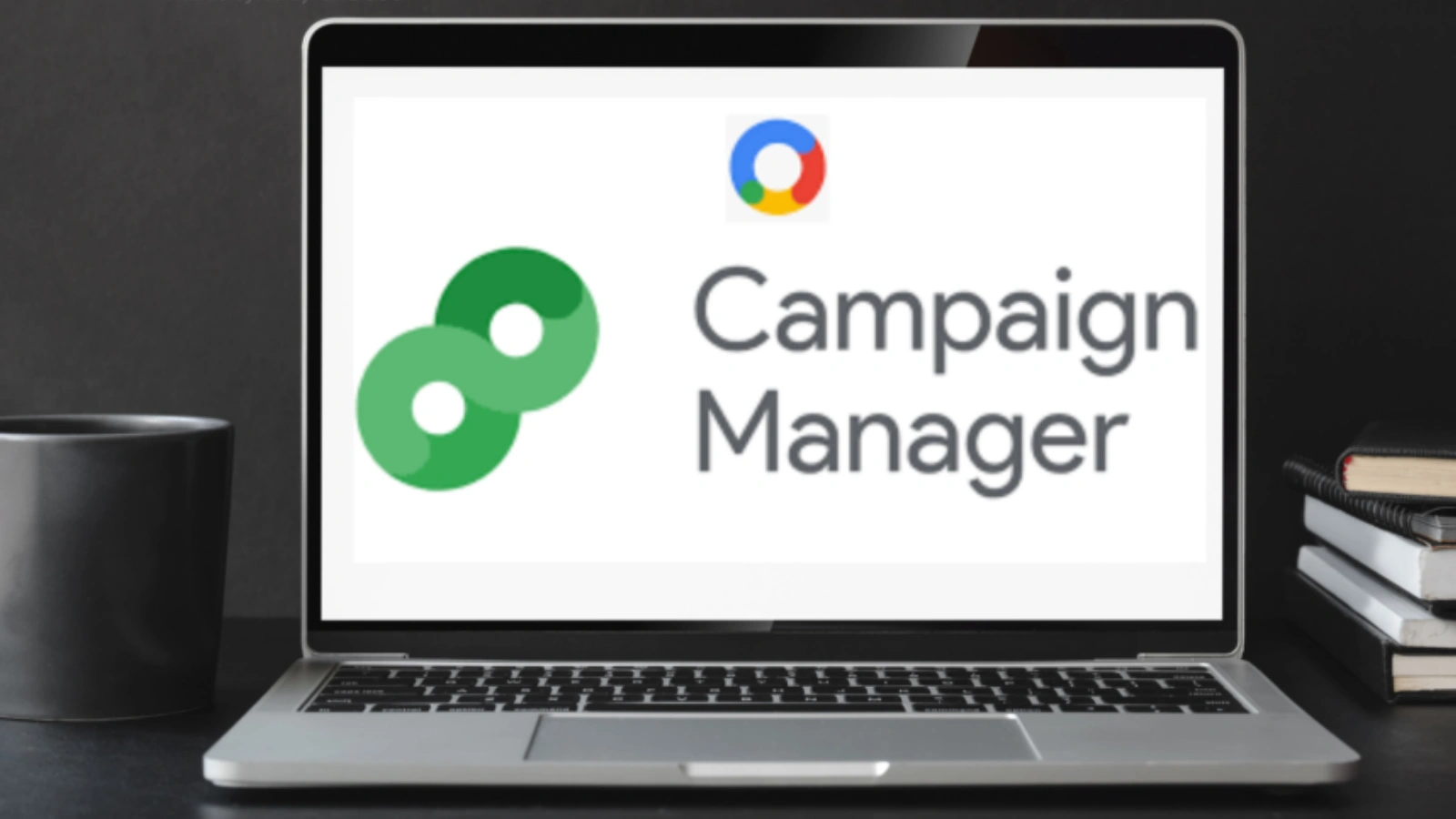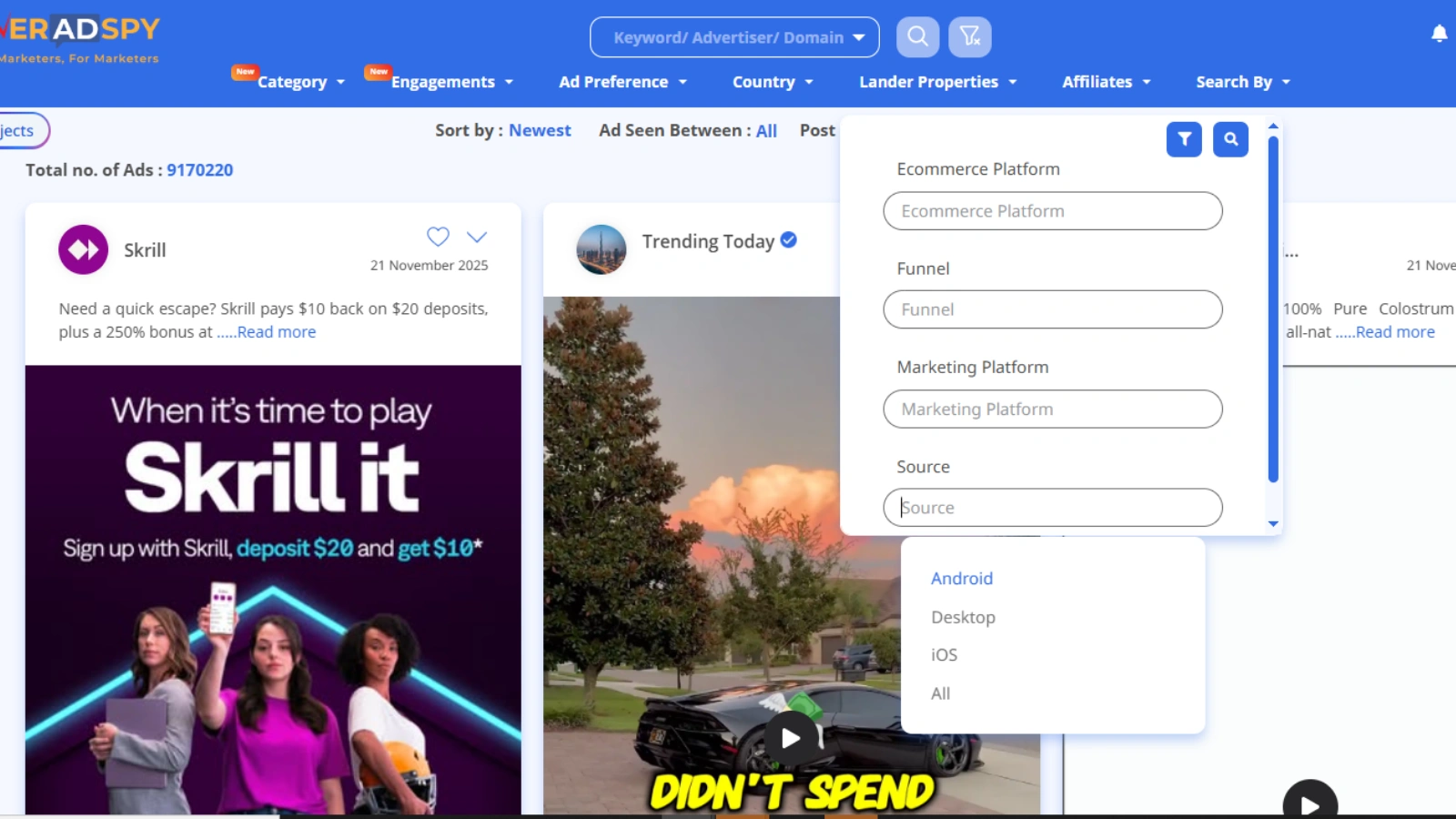How To Become A High-Performing Campaign Manager?
Digital advertising grows faster than any other marketing vertical. New platforms evolve every few months, algorithms change without warning, and customer behavior shifts daily. In this dynamic environment, organizations rely on one crucial professional: the campaign manager. Whether you work for a brand, agency, or freelance business, mastering campaign execution defines how well you drive conversions, generate leads, and scale revenue.
This guide dives into everything you need to know about becoming a successful campaign manager in 2025. We’ll cover the essential responsibilities, the skills you’ll need, the tools at your disposal, optimization strategies, reporting techniques, budget management, and the trends shaping the future. Whether you’re just starting out or you’ve been in the game for a while, this blog is here to help you refine your approach and keep you on the cutting edge.
In a hurry? Listen to the blog instead!
What Does A Campaign Manager Actually Do?
A campaign manager plans, executes, optimizes, and analyzes marketing campaigns across channels like search, social media, Display, and even email. They combine creativity with data interpretation. Their role revolves around increasing engagement and achieving measurable business outcomes.
Campaign planning requires research, understanding the target customer, analyzing competition, and building ad funnels. During execution, a campaign manager monitors performance, adjusts budgets, tests ad variations, and eliminates underperforming assets. After completion, they provide reports that explain results and guide strategic decisions. They also collaborate with designers, content writers, data analysts, and sales teams.
Why Are Campaign Managers In High Demand?
Companies no longer guess where to invest marketing dollars. Every click matters. Every impression must count. A skilled campaign manager ensures that marketing spend results in higher returns. As competition increases, brands want professionals who can audit funnels, reduce cost per click, and scale profitable audiences.
Advertising platforms introduce new features constantly. Without a trained campaign manager, brands risk missing opportunities. Businesses also generate huge amounts of first-party data today. Someone must translate that data into actionable insights. Better campaign performance directly increases sales.
What Core Responsibilities Does An Effective Campaign Manager Handle?
A high-performing campaign manager handles several crucial responsibilities that directly influence campaign success, budget health, and customer acquisition. Their responsibilities require a balance of analytical thinking, creativity, and real-time decision-making, supported by strategic campaign optimization.
Audience Research:
A campaign manager studies demographics, interests, behavior patterns, and online habits to identify the most relevant audience. They segment users into meaningful groups and determine which customer profiles have the highest intent to engage or convert.
Keyword Analysis:
They discover high-intent search terms with profitable conversion potential. This includes reviewing keyword competition, cost trends, long-tail variations, and negative keywords to eliminate irrelevant traffic and keep campaign spending efficient.
Budget Allocation:
A campaign manager distributes budget across platforms based on funnel stages, historical performance, and expected ROI. They continuously monitor spending, reallocate funds from weak channels, and invest more into proven audiences and ad groups.
Creative Direction:
They guide messaging themes, ad copy, visual design, and landing page tone to match audience psychology. A strong creative direction ensures consistent branding, compelling calls-to-action, and smooth funnel transitions from ad click to conversion.
Performance Optimization:
Optimization includes testing ad variations, improving quality score, adjusting bids, refining targeting, and removing ineffective placements. Managers analyze CTR, CPA, conversion rates, and frequency to increase ROI while preventing budget waste.
Reporting and Analytics:
Weekly or monthly reports provide stakeholders with easy-to-understand insights about campaign trends, revenue impact, user behavior, and growth opportunities. Clear reporting builds trust and enables smarter business decisions.
Sometimes, the campaign manager must adapt instantly to rising CPC rates, aggressive competitor bidding, ad fatigue, policy updates, or seasonal behavior shifts. Agility is what separates average results from scalable performance.
What Must-Have Skills Should Every Campaign Manager Develop?
To run high-performing advertising strategies, every campaign manager needs a strong blend of analytical, creative, and technical skills. These capabilities influence how effectively they optimize budgets, improve ad performance, and communicate results across departments.
Analytical Thinking:
Campaign managers must interpret data from dashboards, spot trends, and identify areas where performance drops. They analyze KPIs such as click-through rate, cost-per-acquisition, conversions, and return on ad spend to guide strategic decisions.
Technical Proficiency:
A good campaign manager understands tracking pixels, attribution models, bidding methods, audience segmentation tools, and automation features. Technical knowledge makes campaign execution smoother and more scalable.
Communication Skills:
Explaining complex data, attribution paths, and optimization logic to non-technical stakeholders can be challenging. Clear communication ensures leadership understands outcomes, progress, and recommended actions.
Time Management:
Campaigns follow launch timelines, optimization cycles, and reporting deadlines. Strong time management prevents delayed launches, missed seasonal windows, and rushed decision-making.
Adaptability:
Markets shift quickly due to policy updates, competition spikes, algorithm changes, and seasonal demand. An adaptable campaign manager reacts swiftly to protect performance and budget efficiency.
Problem-Solving Ability:
When performance drops, experienced managers troubleshoot targeting, creatives, offers, or bidding logic to restore stability. Problem-solving keeps campaigns profitable under pressure.
Also Read:
Google Ads Campaign Optimization: Checklist & Actionable Tips
How To Build Effective Ads On Google Search: A Step-by-Step Guide
How Can A Campaign Manager Use Google Tools Effectively?
Platforms like Google Ads remain central to digital advertising. A campaign manager using tools such as the google campaign manager ecosystem can track impressions, conversions, and user behavior across multiple channels. This helps ensure that the entire customer journey is measurable.
The ability to compare display and search interactions provides valuable optimization insights. But these tools only unlock their true potential when the user understands attribution models, frequency capping, and audience segmentation. Brands rely on these insights to build powerful multichannel funnels, which is why the role remains essential.
How Does A Campaign Manager Execute Social Media Campaigns?
Social media platforms provide massive audiences and real-time engagement opportunities, making strategic execution essential.
- Targets demographics, interests, and behavior groups.
- Uses retargeting to reconnect with website visitors and video viewers.
- Boosts conversion chances through engaged audience lists.
- Leverages engagement signals to increase organic visibility.
- Drives results using conversion-optimized landing pages.
When executed correctly, social campaigns deliver scalable brand visibility and strong conversion impact.
The Importance Of Campaign Analytics And Reporting
Data drives decision-making. An experienced campaign manager monitors metrics like click-through rate, conversion rate, bounce rate, frequency, and cost-per-result.
Reporting must turn data into recommendations. Stakeholders want clarity, not complexity. Insights may include reducing bids in expensive regions, pausing poor-performing ads, or scaling winning ad sets.
A campaign manager who communicates results clearly becomes valuable within any team.
How Can A Campaign Manager Manage Budgets Effectively?
Budget discipline determines how far a campaign can scale without waste. A strategic campaign manager evaluates spend carefully to maximize ROI and prevent budget leaks, often using an ads manager to maintain full visibility and control.
- Allocates spending strategically across awareness, consideration, and conversion stages to avoid overfunding early-funnel audiences.
- Invests more budget in top-of-funnel reach while reserving funds for high-intent remarketing segments.
- Monitors cost-per-click, cost-per-conversion, and return on ad spend to instantly detect performance dips.
- Shifts budgets dynamically across platforms based on weekly and monthly performance trends to avoid stagnation.
- Plans around seasonal fluctuations, such as holiday retail spikes, end-of-season clearances, or vacation-driven travel demand.
- Prevents overspending by setting impression frequency caps and excluding previously converted users.
- Uses automated bidding models like Target CPA or ROAS when machine-learning outperforms manual control.
- Establishes daily and lifetime budget limits to prevent unintentional overspend.
- Constantly A/B tests creative variations and audience clusters to avoid wasting budget on low-engagement segments.
- Eliminates poor-quality traffic sources by blocking irrelevant placements, apps, or websites.
- Evaluates the customer acquisition cost trendline to decide whether scaling is profitable.
- Allocates emergency buffer funds for real-time bidding wars during competitive seasons or promotions.
With data-driven allocation and smart automation, a campaign stays profitable, scalable, and consistently adaptable in a rapidly changing ad ecosystem.
Also Read:
How To Use Ads Manager To Boost Ad Performance?
How Competitive Intelligence Helps?
Competition influences campaign performance heavily. Brands that ignore competitor messaging risk losing market share. A smart campaign manager uses competitive intelligence tools to monitor competitor keywords, ad copy variations, pricing angles, and promotional offers.
Insights help craft stronger value propositions.
As competition increases and new creatives flood the market daily, a campaign manager must rely on intelligent insights to guide strategy. One helpful resource is PowerAdSpy, a powerful social ads analytics tool that uncovers hidden niches, identifies high-performing creative angles, and reveals competitor audience targeting in real time.
Instead of guessing what works, campaign managers can study winning ads across multiple countries, bookmark successful concepts, and understand engagement patterns before launching new campaigns. This not only reduces testing costs but also increases the chances of launching successful ads on the first attempt.
Observing competitor patterns reveals winning creative formulas. Today, competitive research is not optional, it is a survival strategy.
Tools Every Modern Campaign Manager Should Learn
Modern advertising requires strong software familiarity. Tools for automation, analytics, keyword research, and creative testing are essential. The campaign manager must learn conversion tracking scripts, UTM tagging, pixels, and audience builders.
Automation scripts reduce repetitive tasks. Platform updates reinforce why companies invest in a skilled campaign manager.
What Are The Main Objectives Of PPC And Search Advertising?
Pay-per-click advertising remains a backbone for search-driven customer acquisition. Scaling PPC campaigns profitably requires structured planning and tight control. Staying updated with google ppc management trends improves efficiency and helps reduce waste.
- Targets users with high purchase intent who are already searching for related solutions.
- Optimizes Quality Score to lower cost-per-click while maintaining premium ad positions.
- Uses negative keywords to avoid irrelevant impressions and stop budget leakage.
- Directs traffic to high-converting landing pages that align with search intent.
- Continually monitors cost-per-acquisition to determine if scaling remains profitable.
Even small adjustments to bids, keywords, or targeting can deliver noticeably stronger results especially when you consistently manage ppc campaign workflows with precision.
Why Is PowerAdSpy A Game-Changing Tool For Modern Advertising Strategy?
As digital competition grows, optimization now depends on real market data, competitor insight, and creative intelligence. PowerAdSpy helps campaign managers work smarter by revealing what performs best in real time across multiple industries, platforms, and regions.
Access to Millions of Live Ads Across 100+ Countries:
Campaign managers can instantly identify global trends, creative patterns, and niche opportunities without time-consuming research. This helps plan campaigns around proven engagement styles rather than guesswork.
Complete Visibility into Real-Time Engagement:
Users can open live ads to analyze comments, likes, shares, and audience reactions. These insights reveal what message angles resonate most, allowing campaign managers to optimize scripts, visuals, and hooks.
Advanced Filtering by Ad Position:
By studying how ads perform on placements like newsfeeds or sidebars, managers can allocate budgets intelligently and avoid spending heavily on low-performing positions.
Bookmarking Competitor Ad Concepts:
Saved inspiration libraries help build future campaigns faster especially when launching seasonal promotions or rapid-fire A/B tests.
Powerful Keyword and Domain Search:
Users can filter ads by niche keywords or competitor domains to see exactly how top advertisers speak to similar audiences. This supports audience research, creative direction, and targeting refinement.
Geo-Targeted Insights for Smarter Audience Mapping:
Regional performance data helps identify where conversions spike. Campaign managers can use this insight to improve targeting accuracy and increase ROI across diverse markets.
Instead of spending weeks testing blindly, PowerAdSpy condenses valuable intelligence into minutes, making it a strategic weapon for advertisers who want to scale faster with smarter decisions, stronger creative direction, and data-driven targeting.
Future Trends Campaign Managers Must Prepare For
Artificial intelligence integrates deeply into advertising. AI-generated creatives, predictive audiences, and automated bidding shape the future. A prepared campaign manager supervises automation rather than fearing it.
First-party data becomes important as cookies fade. Privacy regulations increase complexity. Personalization must remain ethical. Systems like google ad campaign manager will improve measurement accuracy.
Voice search optimization grows, while short-form video continues dominating.
Final Tips For Long-Term Success
To succeed long term, a campaign manager should remain curious. Experiment with A/B tests, creative angles, audience layers, and landing page layouts. Study persuasion triggers and brand storytelling. Connect with industry communities.
Document everything. When campaigns succeed, knowing why matters. When they fail, documentation prevents repetition. Share insights with stakeholders.
A campaign manager who communicates effectively becomes influential.
Conclusion
Becoming an outstanding campaign manager requires commitment, experimentation, and analytical precision. As platforms evolve, the ability to interpret data creatively becomes more valuable. Managing budgets, understanding psychology, sequencing funnel stages, and reporting results define long-term success.
With the right mindset, continuous upskilling, and practical experience, anyone can build a strong career in digital advertising. Every industry competes for attention online. The brands that win are those guided by skilled professionals, because behind every high-performing ad strategy, you will always find a focused campaign manager.
And for advertisers who want faster insights, proven creative inspiration, and smarter optimization decisions, PowerAdSpy is a powerful ally that helps analyze competitors and scale campaigns more confidently.
FAQs
1. How long does it take to see results from a digital advertising campaign?
You might start seeing some results in just a few days, but to really understand how well your campaign is doing, you’ll want to wait about 2 to 4 weeks. This timeframe gives you enough data to optimize your strategy and report accurately.
2. What are common mistakes new campaign managers make?
Newbies often make the mistake of targeting audiences that are too broad, overlooking negative keywords, sticking to just one creative format, and not tracking conversions effectively.
3. Do campaign managers need coding or design skills?
While it’s not a must, having a basic grasp of user experience, landing page layout, and some design principles can really boost your ad performance and help you communicate better with your creative team.













